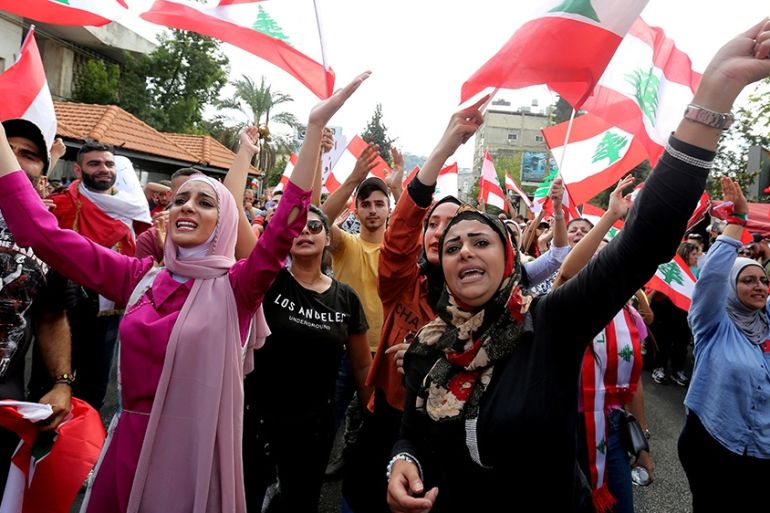Lebanon to foreign donors: We are serious about slashing deficit
To unlock billions pledged at a donor conference last year, Lebanese government must show donors it is cutting spending.

Lebanon expects foreign donors to react positively to reforms it has agreed and wants to show it is serious about cutting the budget deficit, a top government adviser said on Tuesday.
Lebanon’s cabinet on Monday approved an emergency reform package in a bid to defuse the biggest protests in decades and help unlock billions pledged at a donor conference last year.
Keep reading
list of 3 itemsLebanon’s cabinet approves reforms after protests
Lebanon’s cabinet approves reforms after protests
Prime Minister Saad Hariri and top officials drew up the list of steps over the past few days amid protests sweeping the country and rising calls for the government to resign.
“We believe the decisions will get very positive reactions,” he said. “It is hoped that…Lebanon, in a very short period of time, will be able to restore the capacity to fund debt requirements,” Nadim Munla, Hariri’s senior adviser, said in a briefing to journalists.
He said holders of Lebanese government debt would not be affected by the reform package, which includes cutting debt servicing costs.
The plans include halving the salaries of ministers and overhauling Lebanon’s wasteful power sector. The cabinet also approved on Monday a 2020 state budget that does not impose new taxes on people and aims for a deficit of 0.6 percent of total economic output, down from a previous target of about 7 percent.
Commercial banks and the central bank are set to contribute to the deficit reduction with 5.1 trillion Lebanese pounds ($3.4bn), including through a tax hike on bank profits.
Lebanon has the world’s third heaviest public debt burden, at some 150 percent of total economic output. The unemployment rate among those aged 35 and under is 37 percent, while remittances – a key source of foreign income – have started to dry up.
Foreign donors and investors last year pledged $11bn to help Lebanon finance a capital investment programme, as long as it enacts reforms.
“We wanted to send a very clear message that Lebanon is serious about handling its budget deficit,” Munla said. He said this would hopefully lead to “a very positive development in the markets” and an increase in foreign direct investment.
He said the forecast deficit cut would come from reducing spending, including power subsidies, debt servicing costs and capital expenditures. Munla added that 0 percent economic growth was expected in 2020.
He said some political factions had called for a cabinet reshuffle, an idea which would be determined in the coming days. But he said the move has not yet reached a level of serious debate or come from Hariri.
“Restoring (people’s) confidence will be an uphill battle,” he said regarding the protests.